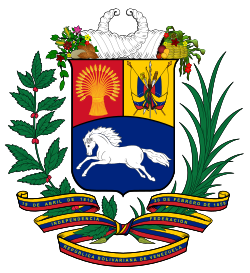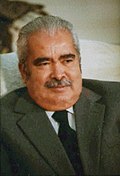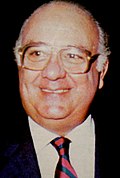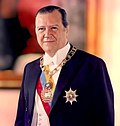| |||||||||||||||||
Presidential election | |||||||||||||||||
| Turnout | 87.75% | ||||||||||||||||
|---|---|---|---|---|---|---|---|---|---|---|---|---|---|---|---|---|---|
| |||||||||||||||||
 Results by region | |||||||||||||||||
| |||||||||||||||||
 |
|---|
General elections for the presidency, Congress and state legislatures were held in Venezuela on 4 December 1983. [1] [2] The presidential elections were won by Jaime Lusinchi of Democratic Action, who received 56.7% of the vote, [3] whilst his party won a majority of seats in the Chamber of Deputies and Senate.







